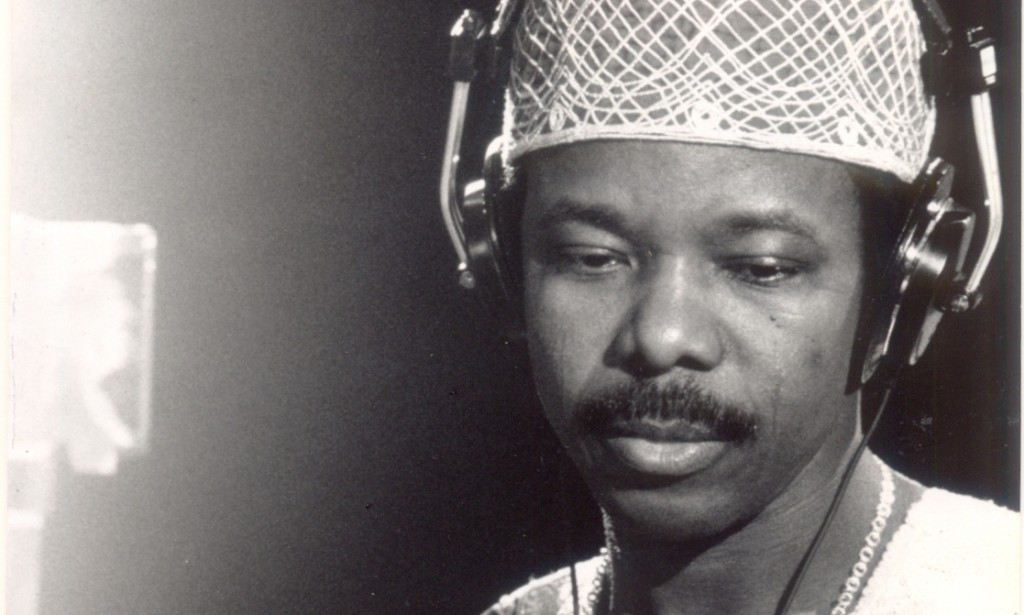A COMEDY OF TOGETHERNESS: (Hypnosis 7)
Essays On The Mystique Of KSA The Sage
By Tunji Ajayi
Prologue to Hypnosis 7: Hope we recall that in Hypnosis 5, this writer resolved to apply allegory to explain the probable impact of King Sunny Ade’s music on millions of his admirers all over the world, putting his personal experience in focus on how his evocative and haunting music had a far-reaching influence on his boyhood age. In that segment, we saw how in creative writing, an allegory is often being used as a symbolic representation of something, which could be an idea, practices, societal foibles, idiosyncrasies etc., by that character. That character thus, reveals hitherto hidden facts, apparently to teach moral lessons.
The impact of KSA’s sizzling and dazzling music on the mind and sensory nerves apparently explains the power of music itself. In Dichotic Test, which examines audience selective attention; and musical stimuli in our auditory nerves, Norman Geschwind, an American behavioural neurologist submits that the human brain is partitioned into left and right cerebral hemispheres. While the Left processes human language, especially during early stage of language acquisition, the right cerebral hemisphere controls emotion – an inbuilt mechanism in human body chemistry. Thus, when you listen to good music, you are most likely to dance uncontrollably; albeit involuntarily. Conversely, when you listen to a dirge, you are not likely to be moved to dance; but being emotive as human, the content naturally affects your mood, and the stimuli makes you cry inconsolably. You have the same feeling when you listen to a “somber elegy”; consequently, your hitherto ecstatic mood momentarily turns sober; because elegies or dirges are chanted for the repose of the dead. Aside from being a voluptuous dancer, fans may have noticed that King Sunny Ade understands kinesics, i.e. body language. Thus, he “acts” the messages in his lyrics, either in audio-visuals or during live performances. For example, in KSA’s “Òrò Ilé aiyé yìí kò tó pón” -“Surprise” (video, 1992), he employed kinesics to drive home his somber elegy on Late Alhaja Simbiat Atinuke Abiola. He understands and spontaneously responds to the abstruse and esoteric messages of the talking drum, and that transmutes him into an avid, most unique and perhaps, one of the best dancers on the world’s entertainment podium. A close observation will reveal that he either taunts the drummer with his lead Guitar, or the drummer taunts, mocks or “abuses” him to prod him up and egg him on; which often makes his live plays seem like episodic movies, devoid of any dull moment. E.g. Talking drum’s abstruse messages like: “S’ohun tó se, kóo tó d’olókùrùn kalè . . .” (Act decisively and stop gawking like an imbecile); or the lead drummer jokingly mocking the teetotaler: “Sunny a b’oo sá pápá . . .” (Are you under any intoxicant . . .?). Subliminal messages like these often propel the energetic artiste to jump on the entertainment podium like a kangaroo and dance from dusk till dawn like wallabies. Sunny is a grand-master in his craft. He is hardly “serious” or looking morose on the rostrum, but he is overly playful during live shows, while simultaneously injecting humour to lend candor and glamour to his performances. Yet, while busy “terrorizing” and taunting his ensemble, neither the messages, the tempo, the rhythmic ostinatos, nor multiple string equipments run into discordance during his sizzling performances. How KSA effectively applies about 6 string instruments simultaneously, in addition to a wailing pedal steel guitar, would evidently amaze even the great Aston “Family Man” Barrett and the legendary Jimi Hendricks of the guitar world! Sunny is perhaps the only string instrument wizard, who totally subdues the Guitar, making the ubiquitous instrument to completely do his bidding without grudging!
Notice again that KSA, using “plagal cadences” to partition tracks, often applies his lead Guitar and other string or wind instruments to lend credence, or respond to the messages of his songs. For example again in SDLP 008 “Glory” (1993), especially in the euphemistic assertion: “Iyì t’Ódíderé ní la se n kó’le fun nínú ilé” – (The parrot’s honourable status necessitates its accommodation within human domiciles), Sunny applies with sublime beauty the keyboard to give mimicry of the parrot’s voice. Thus, the reality or truism of his messages easily dawns on the audience. In communication, a sender of a message has said nothing, unless he makes clear his message to the decoder. KSA rules the world with his magisterial music. Let’s enjoy this week’s Hypnosis 7 – “A Comedy of Togetherness.”
A Comedy of Togetherness! Hypnosis 7
From last week Saturday . . . . . . . .
. . . . . . . Nonetheless, I still went back to watch Sunny Ade's live performance that same night while mummy suffered severe trauma throughout the night for the momentary ‘loss’ of her two little scallywags. Up till this day, my brother’s chin scar always makes me reminisce on Sunny Ade's enchanting artistry on the guitar.
In 1978, I sat for my G.C.E Ordinary Level Examinations and needed to offer Yoruba language as one of my subjects. I must add beauty to my essay by embellishing it with rich Yoruba proverbs and idioms. Unconsciously, I was soliloquizing, to the discomfiture of the examination invigilator who inquired from me if I hadn't gone berserk. I had been muttering Sunny Ade's proverb-ridden lyrics: “Ogidan koni se barber”, in the examination hall to recall to memory its 22 proverbs! I passed the subject in flying colours.
I always made sure that I purchased any of King Sunny Ade's albums the same day he released it. The reason for this is psychological. I just must buy it fresh that same day! The only Sunny Ade album I don’t have in my music library today is the one in his mind, that is, the one he has not yet released!
On an unforgettable day in 1984, I was returning from the National Youth Service Corps’ weekly community development program. Clad in the NYSC insignia, I combed every shop in Ile-Ife city in Osun State where I served the scheme, but could not get a copy of the album – “Togetherness” - a KSA album released in that year. I entered into one big electronic shop to request for a copy of “Togetherness” only to catch sight of something that made me freeze - a pretty damsel.
"Can I help you? What do you want to buy here?" She asked with her innocent and sweet girlish voice. This is another "Togetherness", I reasoned fast. I took a deep sigh. I must be brave and be a real man. I answered her question: "It is YOU I want to buy. YOU!” And up till today, the spirit of "Togetherness" has made us stick together as husband and wife. I had opposed her reading English, for I preferred Law instead; a course I love dearly. But eventually, it has turned out now that I am the chief beneficiary of her linguistic prowess which has contributed in no small measure to the beauty of this work.
I therefore owe King Sunny Ade himself deep appreciation. The endless search for his "Togetherness" of 1984 made me find the ever-patient Patience Desola Ebun Olutola-Ajayi where she ‘hid’ in 1984. I appreciate her unflagging patience and tolerance on my unusual absence while I cuddled KSA's numerous albums, playing and analyzing them in the middle of those frosty nights; cudgeling up my brain to get down accurate words, while my typewriter prattled like parrots endlessly in the eerie nights. Her dovelike character provides a good lesson on patience, deep love and forbearance.
Oh, lest I forget: One more comedy? She didn’t know the meaning of the enigma called King Sunny Ade but rather would hold undetachably to her pop, rhythm & blues music she had been used to, until one December 1990 when she followed me to NTA Ibadan, albeit reluctantly, to watch KSA’s live performance. She then saw a magisterial showmanship of an ebullient and effervescent music maestro. Thus she saw first-hand and knew what she had refused to know for ages! And as fate had it, about eight years thereafter, the chicken came home to roost; she became King Sunny Ade & The African Beats’ Booking Manager until few years thereafter when she returned to her broadcast journalism career.
In writing this memoir on a great sage, permit me to create "a writing world of my own" like that British journalist and writer, Cyril Connolly once said. According to him, "A great writer creates a world of his own and his readers are proud to live in it. A lesser writer may entice them in for a moment, but soon he will watch them filing out.” Reading about King Sunny Ade can be a wonderful and exciting experience. I am most certain you would not have cause to "file out" in my world of writing about one of the greatest entertainers who has ever ruled Nigeria's juju music empire, and perhaps the African entertainment circus.
Please join me next week Saturday on the next episode of “Essays on the Mystique of KSA The Sage”. Until then bye for now . . . . .



You must be logged in to post a comment.